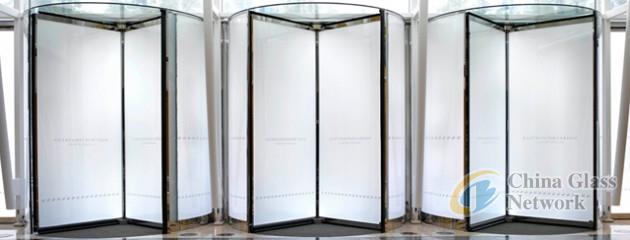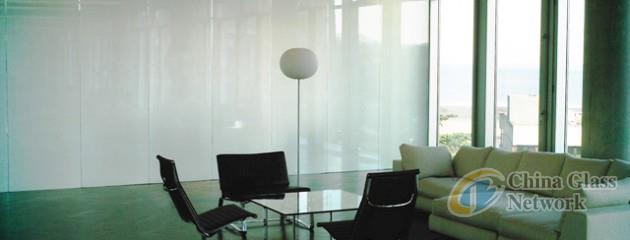Post Time:Aug 18,2015Classify:Company NewsView:641
While Solar Smart Glass and Privacy Smart Glass are often used in the same environment, they have their own unique purposes.
Solar Smart Glass
Solar Smart Glass is designed to both control solar glare and reduce thermal transmittance, making a building more energy efficient. On the other hand, Privacy Smart Glass was created to offer privacy at the flick of a switch, instantly turning glass from transparent to opaque whilst preserving light.

Solar Smart Glass
As they were designed with different applications in mind, Solar smart glass and privacy smart glass use quite different technologies. Solar Smart Glass uses SPD light-control technology, which blocks over 99% of UV rays and consists of five main components. There are two panels of glass, which have suspended particles placed between them in a liquid suspension or film. When there is no voltage applied the particles are random, blocking and absorbing all light. However, when voltage is applied, these align with one another and let light pass, to the degree the user desires. This current is transmitted through the transparent conductive material which is used to coat the panes of glass. It can be controlled through a range of options, including remotes and wall panels.
Solar Smart Glass is best suited to exterior windows, where it can provide optimum light control. It’s unique technology is not intended to fully obscure the vision of passers-by. Instead it offers total control over solar heat gain and glare whilst still preserving views. This makes it perfect for building facades, penthouses, hotels, etc.
Solar Smart Glass

Privacy Smart Glass
While Privacy Smart Glass has the same basic structure as Solar Glass, with glass coated in a transparent conductive material effectively “sandwiching” the solutions, they use very different technologies. Privacy Glass uses Polymer Dispersed Liquid Crystals (PDLC) to change the function of its surface. Instead of suspended particles, this contains liquid crystals and polymer. The liquid crystals are incompatible with the solid polymer, and so form droplets in the glass. When no voltage is applied these are organized randomly, making the glass opaque. These align when they experience an electrical current, becoming transparent. Like Solar Smart Glass, Privacy Smart Glass can be controlled through a variety of options.
In contrast to solar controlled smart glass, Privacy Glass is best suited to internal use, such as cubicle screens and office partitions doors. While it can be used for windows, it transmits approximately 70% of light in both the on and off states. (The exact percentage depends on the configuration used.)
If you’d like more details on Smart Glass options for your business, contact Smartglass International today or browse our projects page to be inspired by the range of applications of Solar and Privacy Smart Glass.
Source: www.blog.smartglassinternational.comAuthor: shangyi
PrevGlobal Construction Glass Industry Report 2015
Solar Smart Glass or Privacy Smart Glass – Which to Choose?Next